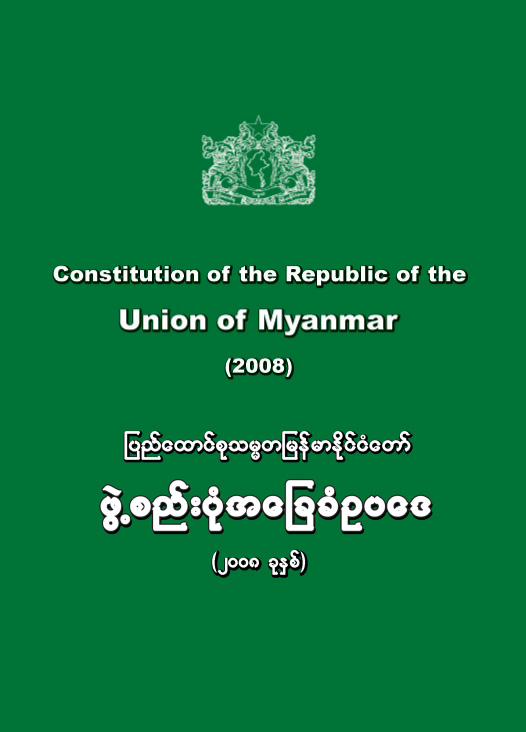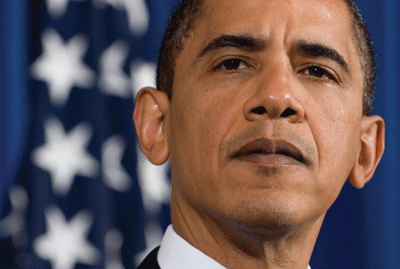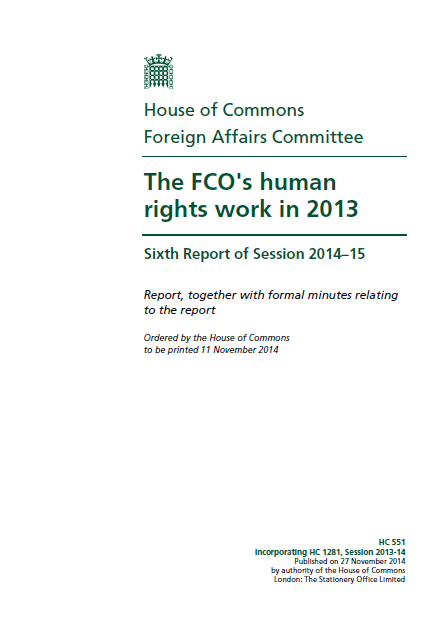Posts Tagged ‘US President Barack Obama’ (43 found)
Presidential Proclamation to the Congress — Restoring Burma’s Trade Benefits Under the Generalized System of Preferences (GSP)
1. Section 502 of the Trade Act of 1974, as amended (the “1974 Act”) (19 U.S.C. 2462), authorizes the President to designate countries as beneficiary developing countries, and to designate any beneficiary developing country as a least-developed beneficiary developing country, for purposes of the Generalized System of Preferences (GSP) program. Section 502(f)(1)(A) of the 1974 Act (19 U.S.C. 2462(f)(1)(A)) requires the President to notify the Congress before designating any country as a beneficiary developing country […]
• • •British Government In Denial About Burma’s Stalled Reforms – New Briefing Paper
Burma Campaign UK today publishes a new briefing paper responding in detail to the British government’s misleading claims and the selective use of information that it uses to defend Burma’s reform process and its own trade-led policy. The briefing paper is available here:http://burmacampaign.org.uk/burma_briefing/british-government-defends-burma-reforms-burma-campaign-uk-responds/ […]
• • •Recent Reports on Human Rights Violations – Summary Briefing Paper
Burma Campaign UK today published a new briefing paper, Recent Reports On Burma, which summarises key points from some of the most recent reports on Burma. […]
• • •The FCO’s Human Rights Work 2013
In this report, we examine the 2013 Foreign and Commonwealth Office (FCO) Report on Human Rights and Democracy (2013 Report), and highlight some areas of particular concern. Promoting human rights should be a foreign policy priority, but for this to be meaningful, we believe that the Department would benefit from the establishment of clearly defined objectives and benchmarks to measure the outcomes of all of its human rights policies, and further prominence being given to these in the Report.
Countries of concern
The FCO designated 28 countries of concern in its 2013 report, where it judged the gravity of the human rights abuses to be so severe that a particular focus should be applied. We have concentrated our attention on three of these countries: Sri Lanka, Burma, and Israel and the Occupied Palestinian Territories. Favourable trade concessions to the EU market should be removed from Sri Lanka if the Government of Sri Lanka continues to deny the OHCHR investigation team access into the country. The Government should advocate re-imposition of sanctions by the EU if there is no improvement in the human rights situation in Burma. The human rights of Israeli, Palestinian and Bedouin citizens living in Israel and the Occupied Palestinian Territories continue to be of serious concern to the UK. […]
• • •Constitutional Stalemate Sinks Hopes of Genuine Democracy and National Reconciliation
 On Tuesday 18 November, Parliamentary Speaker of the lower house of the Burma Parliament Thura Shwe Mann boldly announced – to everyone’s great frustration but no one’s great surprise – that there would be no amendments made to the controversial 2008 Constitution before the 2015 national elections. So, what are the implications of this announcement, and why is the timing significant?
On Tuesday 18 November, Parliamentary Speaker of the lower house of the Burma Parliament Thura Shwe Mann boldly announced – to everyone’s great frustration but no one’s great surprise – that there would be no amendments made to the controversial 2008 Constitution before the 2015 national elections. So, what are the implications of this announcement, and why is the timing significant?
The implications for democracy in Burma are threefold. First, unless Article 59(f) is amended, Daw Aung San Suu Kyi will not be able to lead her NLD party and run for President in the 2015 elections. Although many have long feared the worst, thus far hope has persisted, especially in light of the NLD’s highly successful campaign in favor of constitutional amendment, which attracted five million signatories in support. However, Thura Shwe Mann now seems to be calling time on Daw Aung San Suu Kyi’s political career – and the dreams of so many long-suffering and long-hopeful Burmese – smoothly but ruthlessly side-lining her until such time as she can safely be labeled a political irrelevance, and dumped for good. At the same time, his comments can be interpreted as an oblique, discreet and wily announcement of his own ambitions for a tilt at the presidency next year.
Second, without a significant overhaul of the 2008 Constitution to ensure that the rights, autonomy and self-determination of ethnic minority nationalities are respected and enshrined in law, the peace process does not stand a chance. Fighting rages on in Kachin State – not to mention in northern Shan and Karen State – with no sign of abating. The day after Thura Shwe Mann made his announcement, 23 Kachin and other ethnic nationality soldiers were killed and as many as 15 wounded when Burma Army troops fired on a military training base in Laiza, the strategic headquarters of the Kachin Independence Army. […]
• • •BROUK Welcomes US Senate Resolution on Rohingya
Burmese Rohingya Organisation UK today welcomed the introduction of a Resolution in the US Senate condemning all forms of persecution and discrimination against the Muslim Rohingya ethnic group from Burma. BROUK would like to express many thanks to US Senator Menedez and Senator Mark Kirk for introducing this resolution. […]
• • •British Government Still In Denial About Reality Of Burma Reforms
Following a debate on human rights in Burma in the British Parliament yesterday evening, Burma Campaign UK today accused the British government of being in denial about the reality of the reform process in Burma. Burma Campaign UK called on the British government to formally accept that the reform process in Burma has stalled, that the process is not a transition to democracy, and to change policy accordingly. […]
• • •Are You Listening, President Obama?
 US President Barack Obama’s made his much-anticipated second trip to Burma last week during the 25th ASEAN Summit, amid growing awareness that the reforms which he so eagerly celebrated during his 2012 trip are quickly unravelling – or being exposed for the stage-managed charade that they are.
US President Barack Obama’s made his much-anticipated second trip to Burma last week during the 25th ASEAN Summit, amid growing awareness that the reforms which he so eagerly celebrated during his 2012 trip are quickly unravelling – or being exposed for the stage-managed charade that they are.
In 2012, it was all too easy to trust the reform process. National elections had been scheduled for 2015, Daw Aung San Suu Kyi had been freed from house arrest and elected to Parliament, political prisoners had been released, a nationwide ceasefire process was underway with the majority of armed ethnic groups, and restrictions on media and civil society had been drastically loosened. And so the US and the international community embraced the reforms.
Yet, last month, in her recent address to the UN General Assembly, Special Rapporteur on the situation of human rights in Burma Yanghee Lee warned of the risks of backtracking. Then, earlier this month, Daw Aung San Suu Kyi labelled the process as “stalled” and remarked that “there have been times when the [US] government has seemed over-optimistic about the reform process.”
Furthermore, there has been a flurry of recent calls from civil society across Burma, directly raising their various concerns about the reform process with President Obama. The Karen Human Rights Group wrote an open letter drawing President Obama’s attention to human rights violations resulting from the ongoing government military presence throughout south-eastern Burma; […]
• • •Open Letter to Mr. Barack Obama President of United States of America
We are writing to you to inform you about current situation in Myanmar and the reality on the ground from the perspective of young people. Allow us to get straight to what we want you to know. Current reform in Myanmar is fake. Changes that have happened are cosmetic to please the international community to attract investments to get the old regime out of economic isolation. We do not believe this reform process is going to take us anywhere because the motivation for reform is insincere. We want genuine democracy and national reconciliation […]
• • •Statement by Shan Community Based Organizations (CBOs) to US President Barack Obama
We, Shan community based organisations, deplore the large-scale offensive that the Burma Army has been conducting in central Shan State since June 2014, which is in violation of an existing ceasefire agreement and completely negates the Burmese government’s claims to be building nationwide peace. We urge President Obama to publicly raise concerns about this offensive with President Thein Sein during his visit to Naypyidaw, and to call for the Burmese government to immediately end its military operations and begin political dialogue to end the civil war. […]
• • •









 All posts
All posts